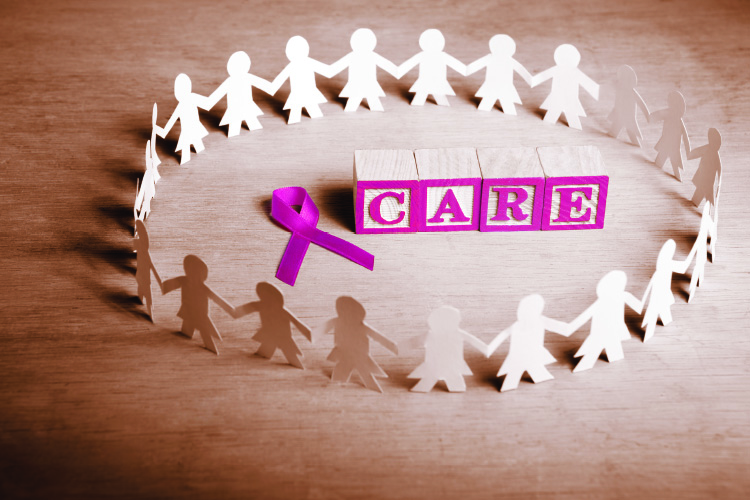For so many women, there is no more dreaded disease than breast cancer. Breast cancer elicits fears related to loss of body image and sexuality, surgery, and death. As is the case for most cancers, the exact cause of breast cancer is not clearly known. Furthermore, there is currently no cure for advanced disease, and there is no definitive way of preventing it.
For the majority of women, lifestyle changes, a healthy diet, cautious use of selected antioxidants, exercise, and weight reduction can also help reduce the chance of developing breast cancer. To date, the most important strategy in improving survival is still breast cancer screening and early detection. Breast cancer is the commonest cancer and is the number ONE cancer killer of women in Malaysia.
The Breast Cancer Welfare Association of Malaysia (BCWA) advises adolescent girls and women to understand the facts related to the breast and to familiarise with the normal changes in their breast, by learning to recognise signs of early breast cancer.
Facts about Breast Cancer
- 1:20 women in Malaysia has a risk of getting breast cancer in their lifetime
- NOT all lumps are cancerous
- If you find any unusual change in your breast, see a doctor
- See a doctor even when the breast lump is NOT PAINFUL
- Tight-fitting or underwire bra DOES NOT cause breast cancer
- Fondling the breasts does not cause breast cancer
Should you do Breast Self Examination (BSE)?
According to the National Cancer Registry (2003-2005), breast cancer is 100 times more common in women than in men and is the number ONE cancer killer of women in Malaysia.
Generally, breast cancer in Malaysian women occurs in the younger age group between 40 and 49 years of age (Hisham and Yip, 2003). However, when younger women are diagnosed, the cancer tends to progress rapidly (Memis, Balkaya and Demirkiran, 2009). Even so, early education on BSE will set a platform for adherence to Breast Self Examination, and mammogram screening later in life.
When breast cancer is diagnosed relatively early, life expectancy and quality of life increase. Early diagnosis also decreases potential for certain symptoms such as pain, resulting in decreased expenses of treatment. (Memis, Balkaya and Demirkiran, 2009)
The cause of breast cancer is unknown. However, the risk factors for developing breast cancer are:
- Increasing age
- Family history
- Early menarchy
- Late menopause
- Late first pregnancy
- Never breastfed before
- Oral contraceptives
- Hormonal replacement therapy
- Diet rich in fat
Exposure to environmental chemicals
Although regular Breast Self Examination (BSE) does not influence mortality from breast cancer, it assists women in detecting benign breast lumps and in creating more awareness about breast changes (Ibrahim & Odusanya, 2009).
References
Hisham, A.N., & Yip, C.H. (2003). Specturm of Breast Cancer in Malaysan Women: Overview. World Journal of Surgery, 27, 921-923. Retrieved July 14, 2009 from the World Wide Web: http://www.springerlink.com/content/njccuklmh5b92f7f/fulltext.pdf
Ibrahim, N.A & Odusanya, O.O. (200). Knowledge of Risk Factors, Beliefs and Practices of female healthcare professionals towards breast cancer in a tertiary institution in Lagos, Nigeria. BMC Cancer 2009, 1-8. Retrieved July 14, 2009 from the World Wide Web: http://www.biomedcentral.com/1471-2407/9/76
Memis, S., Balkaya, N.A., & Demirkiran, F. (2009). Knowledge, Attitudes, and Behaviors of Nursing and Midwifery Students Regarding Breast Self-Examination in Turkey. Oncology Nursing Forum, 36, 39-46.
















